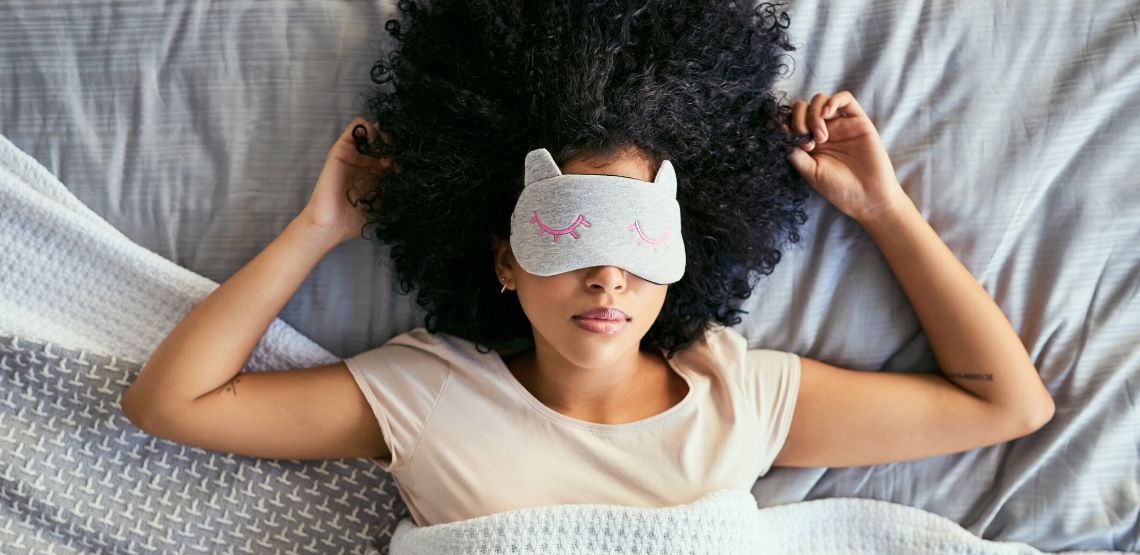How Much Sleep Do I Need?
Getting enough sleep is important for our overall health. Having comfortable blankets, a good mattress and a sleep routine will help you improve the quality of your sleep, and rest easy every night.
The need for a good night’s sleep is often ignored with our busy lifestyles. We also seem to think we need less than we actually do. However, enough quality sleep is extremely important for your overall health, not just to feel alert.
Physical Symptoms of Not Getting Enough Sleep
A lack of quality sleep may cause a lot of issues, including:
- Higher rates of various serious diseases like heart disease, high blood pressure, Alzheimer’s disease, certain cancers and diabetes
- Higher rates of obesity
- Higher rates of depression and anxiety
- Poor mood and a lack of energy and motivation
- Decreased focus, memory and decision-making abilities
- Less coordination, decreased athletic performance and higher rates of accidents both during the normal course of the day and during exercise
- An inability to manage stress
- A lowered immune function leading to frequent colds
- Decreased sex drive
How Much Sleep Do You Actually Need?
According to research done by The National Sleep Foundation and published in Sleep Health, the daily needs according to a person’s age are as follows:
- 0 to three months require 14 to 17 hours
- 4 to 11 months require 12 to 15 hours
- 1 to two years require 11 to 14 hours
- 3 to five years require 10 to 13 hours
- 6 to 13 years require nine to 11 hours
- 14 to 17 years require eight to 10 hours
- 18 to 25 years require seven to nine hours
- 26 to 64 years require seven to nine hours
- 65 years and older require seven to eight hours
If you are pregnant, you need more, especially during the first trimester when you experience more sleepiness during the day. This is because of the higher levels of progesterone as well as metabolic changes.
Tips for Better Quality Sleep
Most people have some bad habits that keep them awake too long or give them bad quality sleep, even if they get the required amount of hours. Here is what to avoid.
Avoid Blue Light Exposure
Exposing your brain to blue light from cell phones, tablets or computer screens within a few hours of going to bed or even just before you hit the sac will affect your sleep quality. Blue light tells your brain to block the production of melatonin (the sleep hormone). Therefor, your brain will remain active. This can lead to a vicious cycle where you spend even more time on your phone or tablet while trying to fall or stay asleep.
Avoid Caffeine and Sugar
Drinking caffeinated beverages like coffee or eating sugary snacks before bed can harm your sleep. Having a large meal is not good for your sleep quality either.
Have Relaxation Time Before Bed
Avoid working until bedtime and avoid working in your bed. You should never sit and work in bed or else your brain will associate your bed with work and it will remain active. Tell your brain that when you are in bed it is time to relax. The blue light from the screen of the device you are working on may also be responsible for you not being able to catch some z's.
Maintain a Healthy Lifestyle
Having a lifestyle that is too stressful or having too much anxiety can keep you from properly resting. Having a sedentary lifestyle and lack of exercise could also be a problem. Exercise is a great way to relieve stress that is keeping you from sleeping well.
Fix Your Posture
Having poor sleep posture and sleep positions can lead to bad sleep. For example, your spine should be resting in a neutral position while resting, so if you use a pillow that is too thick or thin, it can leave your neck and spine under or over supported. The correct height is especially important when sleeping on your side. Your mattress’ firmness must also match your sleeping position to make sure you have good posture while sleeping.
People who sleep on their side should opt for softer mattresses, while stomach or back sleepers should opt for a firmer mattress. You can also use lumbar pillows for sleep to make sure your spine is aligned while sleeping.
Comfortable Temperature
Make sure that your room is at the ideal temperature for you to comfortably fall asleep. Make sure it is not too warm, stuffy or cold. The room should also be quiet and dark to ensure that you do not have distractions keeping you awake.
Maintain a Schedule
It is very important to have a schedule and go to bed and wake up at the same time every day. This will ensure that your circadian rhythm does not go out of whack.
Try Calming Routines
If you cannot sleep, take a bath with lavender, drink chamomile tea, or even read a bit of your current paperback.
However, if you suspect that you have a sleep disorder and not just some bad habits, it is important that you speak to your doctor or health care practitioner.
Can You Make up for Lost Sleep?
Unfortunately, sleeping too little during the week or weekends and getting extra sleep on other days is not a practical approach.
By sleeping too little on some days and oversleeping on others, you not only throw off your regular sleep pattern, but you also damage your health to a point where even driving is a risk to you and other road users. The best way to make up sleep is to do it slowly make consistent changes.
As you can see, sleep is extremely important for your overall health. Why not start your new and improved sleep routine tonight?
